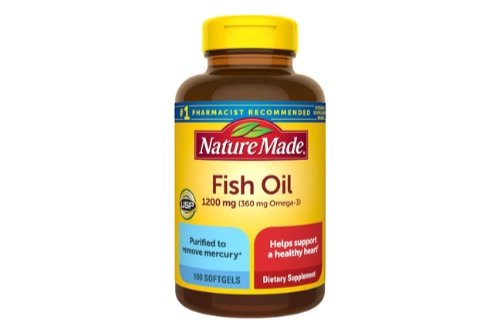Unlocking the Power of Specialized Pro-Resolving Mediators (SPMs) in a Carnivore Diet
Enhancing Health and Reducing Inflammation
The concept of harnessing specialized pro-resolving mediators (SPMs) in the context of a carnivore diet offers a fascinating avenue for improving health outcomes, particularly related to inflammation resolution. SPMs, derived from essential fatty acids, play a crucial role in controlling and resolving tissue inflammation. Integrating a carnivore diet with the natural benefits of SPMs can potentially enhance the body's ability to recover from inflammation and maintain health.
Inflammation is a natural response to injury or infection, but chronic inflammation can lead to various health issues. SPMs help to regulate this process, ensuring inflammation resolves efficiently. In a carnivore diet, rich in polyunsaturated fatty acids (PUFAs) found in animal fat, SPMs can be synthesized effectively, providing the necessary tools for the body to manage inflammation dynamically.
Individuals following a carnivore diet can benefit from the anti-inflammatory properties of SPMs, potentially reducing pain and preventing tissue damage caused by prolonged inflammation. This synergy between diet and natural inflammatory resolution mechanisms underscores the significant health advantages that specialized pro-resolving mediators can offer to those adhering to a carnivore lifestyle.
The Role of Diet in Inflammation
Both dietary choices and specialized pro-resolving mediators (SPMs) have significant influences on inflammation and its resolution. This section explores how the carnivore diet impacts inflammation and the specific role of SPMs in managing inflammatory responses.
Understanding the Carnivore Diet and Inflammation
A carnivore diet consists exclusively of animal products, including meat, fish, eggs, and dairy. This diet is high in protein and fats, while essentially eliminating carbohydrates. Proponents argue that it reduces inflammation by removing common inflammatory foods like processed sugars and grains.
Despite these claims, some researchers caution about potential imbalances. The lack of plant-based elements might lead to deficiencies in essential nutrients. It's crucial to evaluate the diet's long-term effects on inflammation and overall health. Scientific studies on the carnivore diet's specific impact on inflammation are still emerging, emphasizing the need for more research.
Impact of Specialized Pro-Resolving Lipid Mediators
Specialized pro-resolving lipid mediators (SPMs) are critical in orchestrating the resolution of inflammation. Derived from essential fatty acids, SPMs include resolvins, protectins, and maresins. They help to actively counteract inflammation without suppressing the immune response.
In the context of a carnivore diet, the intake of omega-3 fatty acids from fish and grass-fed animal products can augment the body's production of SPMs. For instance, resolvins are derived from eicosapentaenoic acid (EPA), which is abundant in these sources. Enhanced SPM production can reduce the risk of chronic inflammation and related diseases, highlighting the therapeutic potential of dietary components in inflammation resolution.
Fundamentals of Specialized Pro-Resolving Mediators
Specialized Pro-Resolving Mediators (SPMs) play a crucial role in resolving inflammation without suppressing the immune system. They are derived from essential fatty acids and exist in various classes and types.
Biosynthesis of Specialized Pro-Resolving Mediators
SPMs are produced through a multi-step biosynthetic process starting from essential fatty acids, such as omega-3 and omega-6. This process involves enzymes like lipoxygenases and cyclooxygenases.
Fatty acids undergo a series of enzymatic reactions, leading to the formation of bioactive lipid mediators. Structural cells and immune cells are involved in this biosynthetic process, ensuring that SPMs are synthesized where and when they are needed.
The conversion involves intermediates that are transformed through oxidation and reduction steps. Several types of SPMs, including resolvins, protectins, and maresins, emerge from these pathways. Each type has its own specific role in modulating inflammatory responses.
Classes and Types of SPMs
SPMs can be categorized into different classes, including resolvins, protectins, maresins, and lipoxins. Resolvins are further subdivided into E-series and D-series based on their precursors, EPA (eicosapentaenoic acid) and DHA (docosahexaenoic acid), respectively.
Protectins are largely derived from DHA and play roles in neuroprotection and anti-inflammatory processes. Maresins, also DHA derivatives, aid in tissue regeneration and resolution of inflammation.
Lipoxins are derived from arachidonic acid (an omega-6 fatty acid) and function primarily in the resolution phase of inflammation. These classes together help terminate inflammation and promote healing, showing significant therapeutic potential in various inflammatory conditions.
Biological Pathways and Mechanisms
Specialized pro-resolving mediators (SPMs) play a crucial role in resolving inflammation and promoting tissue homeostasis. Originating from polyunsaturated fatty acids (PUFAs), their impact involves various cellular interactions and biochemical pathways.
The SPMs Pathway to Resolving Inflammation
SPMs like resolvins, lipoxins, protectins, and maresins are derived from eicosanoids, which in turn come from omega-3 and omega-6 PUFAs.
The process begins with enzymes converting these fatty acids into intermediate forms and subsequently into specific SPMs. This biochemical conversion reduces the production of pro-inflammatory mediators and initiates resolution of inflammation by limiting neutrophil infiltration and promoting tissue repair mechanisms.
Interaction with Immune Cells
SPMs actively engage with immune cells to mitigate and resolve inflammation.
Macrophages are a primary target, where SPMs enhance phagocytosis of apoptotic cells and cellular debris, a process known as efferocytosis. By doing so, macrophages become more effective in clearing inflammation. SPMs also modulate the activity of leukocytes, reducing their recruitment to inflammatory sites and diminishing overall tissue damage.
The Resolution Physiology of Acute Inflammation
During acute inflammation, the presence of SPMs ensures a timely resolution by orchestrating various cellular functions.
SPMs dampen the inflammatory signals from leukocytes and neutrophils, preventing excessive immune responses. They promote the clearance of dead cells and pathogens, aiding in swift recovery and tissue healing. This resolution is vital to prevent chronic inflammation, which can lead to tissue damage and diseases.
Connection with Polyunsaturated Fatty Acids
Specialized Pro-Resolving Mediators (SPMs) play a crucial role in the resolution of inflammation and are derived from polyunsaturated fatty acids (PUFAs). These molecules include Omega-3 fatty acids, which are integral in converting fatty acids into active SPMs, facilitating anti-inflammatory processes.
Omega-3 Fatty Acids and Inflammation Resolution
Omega-3 fatty acids, particularly Eicosapentaenoic Acid (EPA) and Docosahexaenoic Acid (DHA), are key components in inflammation resolution. These fatty acids are pivotal in the synthesis of SPMs, which reduce inflammation by limiting neutrophil migration and promoting the clearance of cellular debris.
EPA and DHA are found in high concentrations in certain fish and marine oils, making them accessible through a carnivore diet. Their anti-inflammatory properties are essential for individuals looking to manage chronic inflammation associated with various conditions such as cardiovascular diseases and autoimmune disorders.
The Conversion Process of Fatty Acids into SPMs
The conversion process of PUFAs, primarily Omega-3 and Omega-6 fatty acids, into SPMs involves multiple enzymatic steps. These steps include the action of lipoxygenases and cyclooxygenases, which transform fatty acids like Arachidonic Acid and EPA into resolvins, protectins, and maresins.
This biosynthetic pathway is a transcellular process, requiring enzymes and receptors from different cell types, such as leukocytes and resident cells at inflammation sites. The effective conversion of these fatty acids into SPMs is influenced by the dietary intake of PUFAs, highlighting the importance of a balanced diet rich in these essential fatty acids for optimal inflammatory response management.
Health Implications of SPMs
Specialized Pro-Resolving Mediators (SPMs) play a critical role in resolving chronic inflammation, aiding tissue regeneration, and modulating the immune response in various infectious diseases. Understanding these processes highlights the potential benefits of SPMs for managing a range of health conditions.
Resolving Chronic Inflammation and Related Diseases
SPMs facilitate the resolution of chronic inflammation, a condition implicated in many diseases such as arthritis, atherosclerosis, and chronic obstructive pulmonary disease (COPD). By orchestrating the clearance of inflammatory cells and promoting anti-inflammatory pathways, SPMs help restore tissue homeostasis.
These lipid mediators, derived from omega-3 fatty acids, have proven effective in reducing the persistence of inflammation, offering promising therapeutic avenues for individuals with chronic inflammatory diseases.
Promoting Tissue Regeneration and Pain Relief through SPMs
SPMs contribute to tissue regeneration by enhancing the body's natural healing processes. They stimulate cellular repair mechanisms and promote the clearance of debris, which is crucial for tissue recovery.
In conditions like diabetes and multiple sclerosis, where tissue damage and inadequate healing are major concerns, SPMs offer significant benefits. Additionally, SPMs have been found to mediate pain relief by reducing the levels of pro-inflammatory mediators, providing relief in inflammatory conditions such as arthritis and asthma.
SPMs and the Immune Response in Infections
SPMs aid the immune system in balancing the response to infections without leading to excessive inflammation. They enhance the resolution phase of acute inflammation, clearing pathogens while limiting collateral tissue damage.
In infections, such as bacterial or viral, SPMs support the immune system in effectively managing the response, reducing the risk of sepsis or chronic inflammation. This function is vital in preventing long-term tissue damage and in promoting recovery, making SPMs valuable in treating infectious diseases.
Nutritional Strategies and SPMs
Integrating Specialized Pro-Resolving Mediators (SPMs) into a carnivore diet can enhance the diet's anti-inflammatory benefits. This section explores methods to incorporate SPMs and optimize their efficacy within a carnivore framework.
Incorporating SPMs into a Carnivore Diet
SPMs are derived from omega-3 fatty acids, primarily found in fish and certain meats. Incorporating fatty fish, such as salmon and mackerel, into the diet enables the body to produce these mediators. Organ meats, like liver, are also rich in essential nutrients supporting SPM synthesis.
Another strategy is consuming supplements that contain EPA (Eicosapentaenoic acid) and DHA (Docosahexaenoic acid). These acids are precursors to SPMs. Regular inclusion of high-quality fish oil supplements can aid in maintaining adequate levels of these critical fatty acids.
A balance between different types of meats can ensure a diverse profile of fatty acids and prevent reliance on a single nutrient source. This holistic approach supports not just quantity but also the body's conversion efficiency.
If you're looking for fish oil supplement, buying it online is your best bet!
Enhancing the Efficacy of a Carnivore Diet with SPMs
To amplify the anti-inflammatory properties, attention to food quality is paramount. Grass-fed meats are richer in omega-3 fatty acids compared to grain-fed alternatives, offering better substrate for SPM production.
Intermittent fasting is another practice that may enhance SPM efficacy. Fasting periods allow the body to reset and may bolster the natural resolution pathways mediated by these specialized molecules.
Moreover, maintaining low-carb intake within the carnivore diet can help reduce general inflammation levels, allowing SPMs to act more effectively. Combining these strategies, individuals can potentially achieve improved inflammation resolution, enhancing the diet's overall health benefits.
Emerging Research and Clinical Applications
Specialized Pro-Resolving Mediators (SPMs) offer promising potential in both understanding and treating various medical conditions such as neuroinflammation and cardiovascular diseases. Their roles extend into everyday medical practices, contributing to tissue repair and bacterial clearance.
The Future of Medicine: SPMs and Standard Treatments
SPMs are gaining attention for their ability to actively resolve inflammation without suppressing the immune system. In cardiovascular disease, SPMs help reduce inflammation in blood vessels, which can prevent complications like atherosclerosis. Researchers are investigating how integrating SPMs with traditional treatments can enhance patient outcomes.
Neuroinflammation is another area where SPMs show promise. Studies indicate that SPMs can help mitigate the effects of chronic neuroinflammatory conditions, potentially improving cognitive function. The synergistic effects of combining SPMs with standard anti-inflammatory drugs could revolutionize how conditions such as Alzheimer's and Parkinson's are treated.
Ongoing Studies and Potential Therapies involving SPMs
Current research is exploring the various ways SPMs can be used in clinical applications. For instance, the Resolution Bioactive Metabolome, which includes SPMs derived from essential fatty acids like EPA and DHA, is being studied for its role in tissue repair and bacterial clearance. These studies aim to define the precise mechanisms by which SPMs achieve these effects.
SPMs are also being investigated as potential therapies in the realm of medicine. For instance, ongoing clinical trials are assessing the efficacy of SPM analogues in treating inflammatory diseases. Innovations in synthetic SPMs promise to offer targeted treatments with fewer side effects compared to traditional anti-inflammatory medications. Potential applications extend beyond inflammation, with implications for faster recovery in tissue damage and reduction in bacterial infections.
Conclusion
Incorporating a carnivore diet while understanding the role of Specialized Pro-Resolving Mediators (SPMs) offers interesting potential for managing inflammation.
SPMs are crucial for facilitating the resolution of inflammation, a process necessary to maintain homeostasis. These lipid metabolites are derived from essential fatty acids.
Despite the natural occurrence of SPMs, enhancing their production through diet could be beneficial. Omega-3 fatty acids, which are precursors for SPMs, may be obtained from certain animal sources.
The ability of SPMs to manage inflammatory responses without being immunosuppressive can offer strategic advantages in dietary planning. Their synthesized forms, like lipoxins and resolvins, further contribute to tissue homeostasis and inflammation resolution.
This connection between a carnivorous diet and an enhanced production of SPMs underscores the broader implications for inflammation management.
Further research and clinical studies will be pivotal in understanding these interactions and optimizing diets.
In summary, while the carnivore diet primarily emphasizes animal-based nutrients, its role in influencing SPM production and inflammatory resolution opens avenues for holistic health approaches.
Understanding SPMs within the context of dietary choices aligns with a proactive health strategy, blending nutrition science with practical dietary habits.









